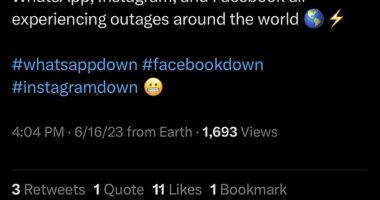THE DEADLINE for accepting WhatsApps new terms is just one day away.
Users who don’t agree with the new privacy policies will lose functionally of their account but this won’t necessarily happen straight away.
How to avoid being blocked by WhatsApp on May 15
The good news is even users who haven’t accepted the new WhatsApp policies by the May 15 deadline still have a chance to keep their account working.
The WhatsApp website stresses: “No one will have their accounts deleted or lose functionality of WhatsApp on May 15th because of this update.”
It also stressed that your chats and account won’t be deleted after May 15.
If you don’t accept the terms you’ll still have several weeks and plenty of reminders that you need to accept before you lose functionalities on your WhatsApp account.
After this point, the reminders will become persistent and hard to ignore.
That’s when you’ll find you can barely use the app until you accept the update.
The WhatsApp website states that this won’t happen to all users at the same time.
WhatsApp explained: “After a few weeks of limited functionality, you won’t be able to receive incoming calls or notifications and WhatsApp will stop sending messages and calls to your phone.”
At this point you’ll have no choice but to click accept on WhatsApp’s new terms or face never using your account again.
What are the new WhatsApp policies?
A disastrous first attempt to explain its new policies saw millions of users download rival chat apps – with many deleting WhatsApp altogether.
Users now have until May 15 this year to click “Accept”, or face being locked out of their WhatsApp accounts.
The new terms are related to messaging with businesses – but were poorly explained.
Even WhatsApp admitted that they were far too confusing, and pushed back the “Accept” deadline from February to May.
The privacy of personal conversations won’t be changing.
Instead, the policy update focuses on optional business features.
Around 175million people message a WhatsApp Business account every day, and this number is growing.
So the policy change affects a huge number of users.
Even if you don’t message Business accounts, you’ll still need to accept the new terms.
There’s also an option to get “more information” on the popup that takes you directly to the WhatsApp website.
WhatsApp – a quick history
Here’s what you need to know…
- WhatsApp was created in 2009 by computer programmers Brian Acton and Jan Koum – former employees of Yahoo
- It’s one of the most popular messaging services in the world
- Koum came up with the name WhatsApp because it sounded like “what’s up”
- After a number of tweaks the app was released with a messaging component in June 2009, with 250,000 active users
- It was originally free but switched to a paid service to avoid growing too fast. Then in 2016, it became free again for all users
- Facebook bought WhatsApp Inc in February 2014 for $19.3billion (£14.64bn)
- The app is particularly popular because all messages are encrypted during transit, shutting out snoopers
- As of 2020, WhatsApp has over 2billion users globally
In other news, Facebook is facing backlash in the US over plans to create a version of Instagram for children under 13.
China is claiming to be a world leader in 6G technology, according to reports.
And, Vitalik Buterin has become the world’s youngest crypto billionaire after the digital currency he co-founded surged in price.
What are your thoughts on WhatsApp’s new terms? Let us know in the comments…
We pay for your stories! Do you have a story for The Sun Online Tech & Science team? Email us at [email protected]
This post first appeared on Thesun.co.uk















